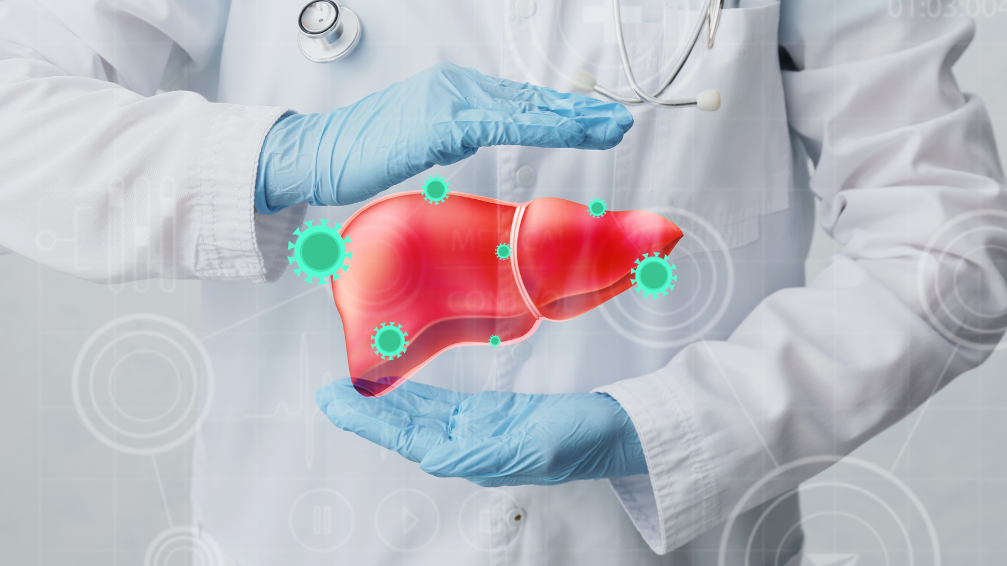
Robotic Liver Surgery- How Does It Impact Liver Transplant
We believe minimally invasive care is life-enhancing care

Let’s Understand Robotic Liver Surgery
Robotic technology has become a major game changer in medical innovation, especially when it comes to liver transplants. Procedures that were before extremely invasive and dangerous have become safer, more accurate, and more widely available thanks to developments in robotics. In this blog, we will explore the field of robotic liver surgery in-depth, providing insight into its significant influence on liver transplantation and the medical field as a whole.
Modern robotic systems are used to carry out complex surgical procedures on the liver during robotic liver surgery, also known as robotic-assisted liver resection or robotic hepatectomy. Robotic surgery employs minimally invasive procedures, whereby robotic surgeons are equipped with surgical equipment inserted through small incisions, unlike traditional open surgeries that necessitate extensive incisions. Surgeons with advanced training operate these tools from a console, providing increased control and dexterity in the small space of the abdominal cavity.
The Function Of Surgeons In Robotics
1. Specialized Knowledge
- Highly Skilled Experts: Specializing in the precise and deft operation of robotic devices, robotics surgeons are highly skilled experts.
- Intensive Training: To become proficient in robotic-assisted treatments, robotic surgeons go through a rigorous training program that includes simulation-based training, thorough practice, and ongoing education to stay up to date on the latest developments in robotic technology.
2. Improving Patient Results
- Assuring Ideal Results: By utilizing their proficiency in robotic liver surgery, doctors who specialize in liver transplants can significantly contribute to the achievement of ideal results for patients.
- Precision And Accuracy: Their mastery of the robotic console allows them to execute intricate movements with the highest level of accuracy, reducing the possibility of errors and optimizing patient safety during the whole surgical procedure.
3. Handling Challenges With Confidence And Trust
- Mastery Of Robotic Systems: Robotics surgeons have a thorough understanding of robotic systems and their capabilities, which gives them the confidence to handle the challenging procedures associated with liver surgery.
- Adapting To Challenges: Robotics surgeons exhibit flexibility and problem-solving abilities in the dynamic surgical setting, skillfully handling any obstacles that may come up during the procedure to guarantee the best possible outcomes for the patients.
4. Working Together
- Multidisciplinary Collaboration: To provide complete treatment and improve patient outcomes, robotic surgeons work closely with multidisciplinary teams that include nurses, anesthesiologists, and surgical assistants.
- Team Coordination: Their ability to lead and communicate effectively makes it easier for team members to work together, which guarantees that surgical procedures are carried out smoothly and that set protocols are followed.
5. Constant Enhancement
- Commitment To Excellence: Robotics surgeons have a strong dedication to excellence and are always looking for ways to further their careers. They actively pursue opportunities to learn new things, attend conferences and workshops, and receive continual training.
- Quality Assurance: By actively supporting best practice standards and quality assurance activities, they help their individual institutions foster a culture of excellence, innovation, and safety in robotic liver surgery.
Advantages of Robotic Liver Surgery
1. Procedures With Minimal Invasiveness
- Smaller Incisions: Robotic liver surgery requires fewer incisions than open surgery, which lessens the damage to the body and the amount of scars.
- Minimized Blood Loss: Since robotic operations are minimally invasive, there is less blood lost during surgery, which lowers the risk of complications like transfusion responses and the need for extra interventions.
- Reduced Recovery Times: Compared to patients undergoing traditional open liver surgery, patients receiving robotic liver surgery usually have shorter hospital stays and faster recovery periods, allowing them to return to their regular activities sooner.
2. Improved Illustration
- Access To Hard-to-Reach Areas: Robotic technology gives surgeons better visibility, making it easier for them to access difficult-to-reach liver regions.
- Facilitates Thorough Resections: Improved visualization enables surgeons to carry out more complete resections while protecting healthy tissue, reducing the possibility of postoperative problems and improving patient outcomes.
3. More Range Of Motion And Dexterity
- Precision In Operations: Compared to traditional procedures, robotic liver surgery provides surgeons with more dexterity and range of motion, allowing them to conduct complex operations with better precision.
- Essential For Intricate Procedures: This degree of accuracy is essential for obtaining the best surgical results and lowering the risk of problems in liver transplants, where the complex vascular and biliary architecture necessitates exacting attention to detail.
4. Enhanced Surgical Results
- Confidence In Navigation: Surgeons can traverse the intricate world of liver transplantation with confidence when they perform robotics liver transplant surgery, which improves surgical outcomes and lowers the risk of complications.
- Increased Success Rates: Liver transplant procedures are performed with greater precision and accuracy thanks to robotic technology, which improves long-term survival and the patient’s quality of life.
5. Improvements In The Provision Of Healthcare
- Patient-Centered Care: By providing minimally invasive treatment choices that put the comfort and well-being of the patient first, robotic liver surgery is an excellent example of patient-centered care.
- Technological Innovation: Robotics liver transplant surgery is a noteworthy example of how technology is being used to improve patient outcomes and surgical practices.
Impact On Liver Transplantation
1. Transforming Transplant Practices
- Changes In Surgical Practices: The introduction of minimally invasive techniques that reduce bodily stress and improve patient outcomes has resulted in a revolution in the field of liver transplant surgery in Bangalore with the integration of robotic technology.
- Extending Treatment Options: By providing less invasive options to conventional open operations, robotic liver surgery expands the pool of eligible candidates for transplantation and gives patients in need of life-saving interventions new options.
2. Reducing Trauma and Quickening Healing
- Minimized Surgical Trauma: Robotic methods reduce surgical trauma by using precise surgical techniques and smaller incisions, which leads to less blood loss and less pain for patients after surgery.
- Faster Recovery Times: Patients who have robotic liver surgery recover more quickly than those who have open surgery, which enables them to resume their regular activities and quality of life sooner.
3. Boosting Complex Case Success Rates
- Accuracy And Precision In Resections: Surgeons can confidently undertake more extensive resections because of the precision and accuracy of robotic systems, especially when dealing with complex liver diseases or tumors situated in difficult anatomical sites.
- Better Results: Robotic surgery raises the possibility of good results by accomplishing complete resections while protecting healthy tissue. This improves long-term survival rates and the standard of living for transplant recipients.
4. Taking Care Of The Organ Donor Demand
- Extending Eligibility Criteria: Patients who may have previously been declared ineligible owing to medical comorbidities or anatomical limitations can now be included in the process of minimally invasive liver transplant procedures thanks to robotic technology.
- Reducing Organ Shortages: Robotic liver surgery contributes to addressing the increasing need for donor organs by increasing the pool of individuals eligible for transplantation, which is likely to shorten waiting periods and enhance access to life-saving therapies.
5. Progressing the Hepatology Field
- Advancing Hepatology: The incorporation of robotics in liver transplant surgery is a noteworthy development that will spur surgical procedure innovation and open the door to additional patient care advancements.
- Improving Multidisciplinary Approaches: In order to provide complete care and maximize patient outcomes, robotic liver surgery encourages collaboration among multidisciplinary teams, which includes surgeons, hepatologists, and radiologists.
End Note
Robotic liver surgery represents a significant advancement in medical technology. It is revolutionizing the field of liver transplantation and providing hope to those with intricate liver problems. Robotic technology heralds a new era of possibilities in the field of hepatobiliary surgery with its unmatched precision, low invasiveness, and transformative effect on surgical outcomes. The application of robotics to liver transplant surgery holds promise for a future where every patient receives the treatment they deserve, with compassion, knowledge, and innovation at the forefront, as the path toward precision medicine continues. So, if you are looking for a liver transplant in Bangalore, get in touch with MH Robotic Surgery Clinic today and improve your quality of life, thanks to our immensely experienced robotics surgeons.



